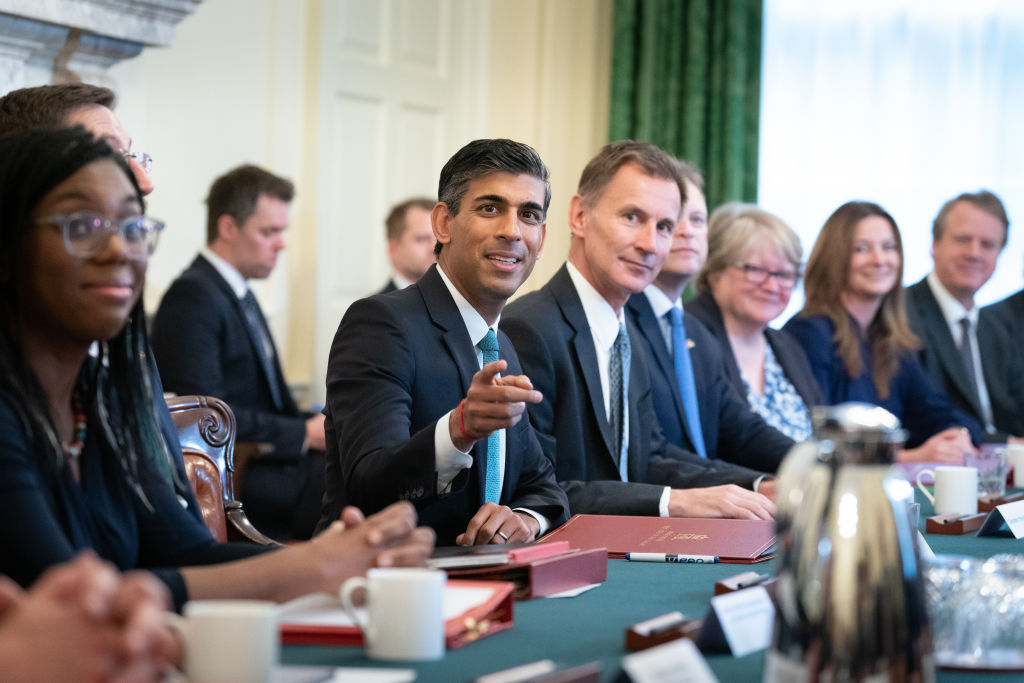The ship of the state is the only vessel that leaks right from the very top

It seems quaint to imagine now, but revealing government policy to the media before the House of Commons was once a constitutional faux pas of huge seriousness. In 1947, the Labour chancellor, Hugh Dalton, let slip some details of the Budget to a reporter as he walked into the chamber to deliver his speech. The leak was printed in the early edition of the evening papers, before Dalton had finished speaking, and he was forced to resign.
That was 75 years ago, almost to the day. Now, government leaks details of policies as a matter of routine; indeed, it has become part of the political process, a way of developing policy at various stages. When Suella Braverman resigned from Liz Truss’s blink-and-you’ll-miss-it cabinet last month, one of the charges against her was that she had shared confidential Home Office documents with a Conservative backbench MP, Sir John Hayes. Her defenders were quick to point out it was perfectly all right for a minister to consult a fellow MP on the development of policy. Well, it was not always so.
The other great purpose of leaking from the government’s point of view is to test the court of public opinion. Leaks are ideal from this point of view: they are seized on greedily by the media, but it is the traditional position of ministers and officials that they do not comment on leaks. So a policy can be floated unofficially, the reaction of voters gauged, and all the while the government can remain aloof and silent.
During the Covid-19 pandemic, for example, when lockdown regulations were introduced, Whitehall insiders leaked supposed plans for an even stricter régime to see how far the public would tolerate restrictions on their liberty (though the so-called “Plan C” was not, in fact, introduced). This could also have been the beginning of a campaign to prepare the public for bad news: if the additional restrictions had been required, they would at least have been the subject of public debate and discussion before their official unveiling.
As a former House of Commons official, I am duty bound to observe that this kind of leaking is improper, disrespectful to Parliament and really annoys the Speaker. The official stance is that major policy announcements should be made—where possible—to the Commons. In truth, though, this is a rule which has been under severe strain since at least the Blair government, with its ruthless control of the media “grid”. The sitting times of the House do not always coincide with convenient media deadlines, and extensive questioning by MPs is more arduous than a “soft launch” in a newspaper.
Realistically, however, the unofficial trialling of policy is now a normal part of decision-making in government. It is becoming more so as we go through a period of considerable economic austerity, since the government knows that it will have to deliver bad news to the electorate from time to time. It was once believed brave and straight-talking to be honest with voters—one thinks of Roy Jenkins’s unexpectedly muted 1970 Budget which contained few extravagances and was believed to have contributed to Labour’s defeat at that year’s general election—but such a courageous approach to media handling is no longer in vogue.
Without wishing to be too apocalyptic, this extra-cautious approach to policy, with the desire not to offend assuming ever-greater importance, is impoverishing our political discourse. Whatever view one takes of the austerity policies pursued by David Cameron and George Osborne in the early 2010s, they did at least admit, even advertise, the fact that stringent cuts were necessary. It is not clear that a government of either hue, a decade on, would be so open.
Politics will always struggle to distinguish between the medium and the message, and in truth they cannot be disaggregated. But there is a tendency to emphasise delivery over content, and to blame poor presentation when policies come unstuck or meet fierce opposition. Cracking down on Whitehall’s leaking culture would help restore a degree of seriousness and responsibility to our politics, but that ship, leaks and all, may already have sailed.